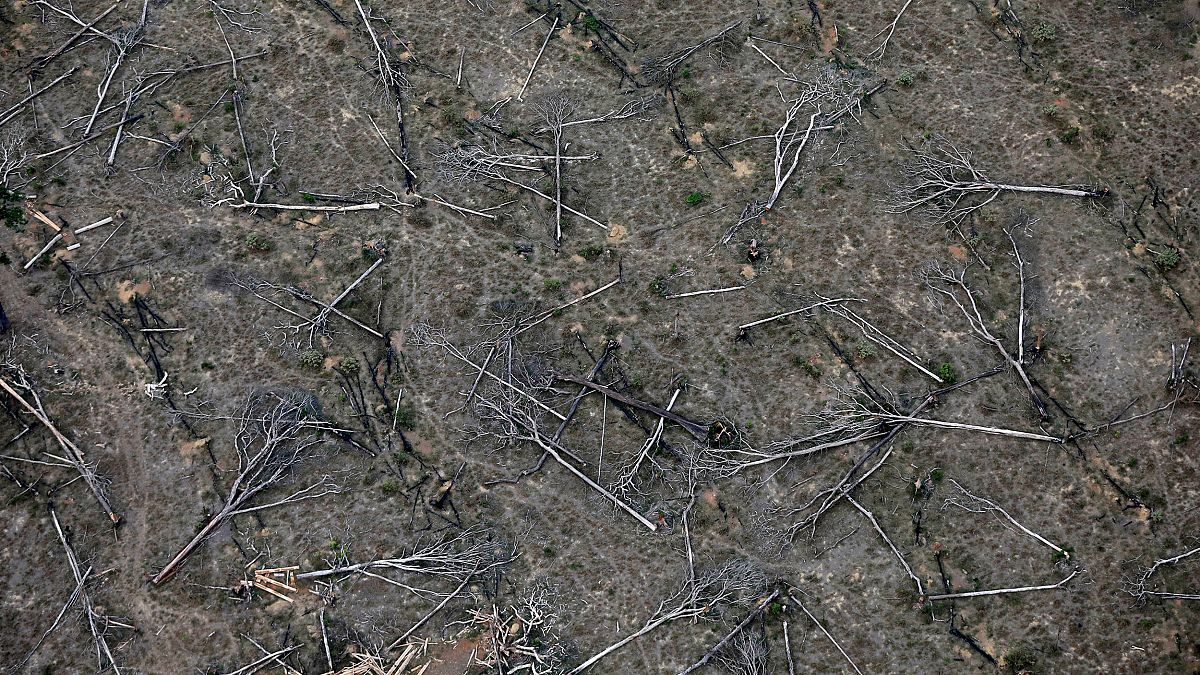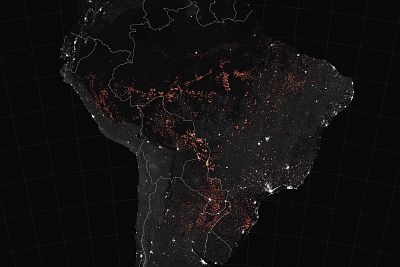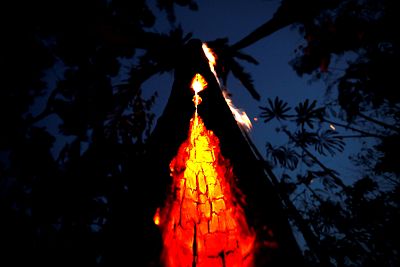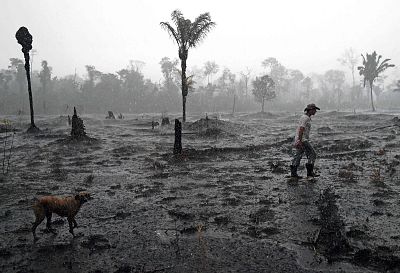"I think it is fundamental that the government sends a signal that illegality is not allowed anymore in the Amazon," one expert said.
As the Amazon continues to burn in a record fire season, experts say the problem is rooted in illegal logging and criminal networks exploiting the forests for its natural resources and agricultural potential.
"The government doesn't have any governance over what is going on," Ane Alencar, science director for the Amazon Environmental Research Institute (IPAM), told NBC News from Brazil on Thursday.
Alencar co-authored a report released by IPAM last weekthat found deforestation — and not drought — is the primary driver behind the record fires this year. Human Rights Watch also released a report Tuesday pointing to "rainforest mafias" for causing the deforestation, fires and the deaths of the land's defenders — predominantly indigenous peoples.
Fires in the rainforest gained global attention last monthwhen images of the smoke darkening skies over Brazil prompted an international outcry.
While the extent of the fires has since decreased in recent weeks, likely a result of the international and national push for Brazil's government to act, Alencar said, it remains far worse than last year.
A third of the fires this season occurred in undesignated forests — unprotected areas vulnerable to land-grabbing — and unregistered lands, the IPAM report found. Conservation sites saw a surprising increase in the number of fire outbreaks this year, twice the number than the average between 2010 and 2018.
"I think it is fundamental that the government sends a signal that illegality is not allowed anymore in the Amazon," Alencar said, "and this would reduce the deforestation pressure."
Illegal logging is the first step in a vicious cycle that is resulting in the disappearance of the rainforest, Moira Birss, a campaign director for the California-based nonprofit Amazon Watch, said.
Loggers remove valuable trees that can be sold on the market, she said, and the remaining vegetation is then burned, resulting in widespread fires.
Earlier this month, the country's federal police estimatedthat 90 percent of timber removed from the Brazilian Amazon is done so illegally.
The cleared land — which is far more profitable than the untouched forest — is then used for cattle ranching, soy production or other industrial purposes, Birss said.
Land grabbing and large scale timber extraction have caused a "showdown" between criminal networks and the people trying to protect the forests, Human Rights Watch said. More than 300 forest residents, enforcement officials and activists have died in the last decade, including at least six environmentalists and an indigenous chiefthis year alone.
It's not a new phenomenon and both indigenous communities and law enforcement have reported violence over the territory has spanned years. But Human Rights Watch and other experts who spoke to NBC News said the steady erosion of environmental regulations and indigenous land rights under President Jair Bolsonaro is exacerbating the problem.
"The situation is only getting worse under President Bolsonaro, whose assault on the country's environmental agencies is putting the rainforest and the people who live there at much greater risk," Daniel Wilkinson, acting environment and human rights director at Human Right Watch, said in a news release.
Alencar said the rate of deforestation has also escalated this year after the president pledged during his election campaign that the forest was open for business, undermining protectionist policies that were already falling short.
"This is a confrontation of the law," she said. "People felt that they could do it and nobody would say anything."
The recent outcry has been monumental in forcing the government to respond to the fires, Alencar added.
While firefighting is critical to mitigating the damage in the short term, stronger environmental policies and enforcement to stop illegal deforestation are the best way to protect the forest in the future, the IPAM report said. Without a long term plan, the current rate of deforestation puts the forest at risk of more explosive blazes as natural fire barriers within the ecosystem disappear and more extreme weather conditions occur.
For people around the world keen on helping the situation, Amazon Watch and other environmental groups compiled a list of the 12 worst offending companiesincluding multinational banks, soy producers and retailers that are contributing to deforestation.
An economic hit to the companies behind the problem and to Brazil would drive Bolsonaro to rethink his policies for industrializing the forest, Birss said.
Supporting Indigenous people and protecting their rights is another important route toward protecting the environment. "If you look at maps of the Amazon, there are these islands of intact forest and the vast majority of those islands are indigenous territories," she said.
Despite the destruction, Alencar said Brazil is lucky the recent fires started early in the season and drought was not a major factor at play. But a year with a stronger El Niñoweather pattern would cause much drier conditions, leading to a catastrophic situation, she said, which raises concerns for the future.
"It is important to take action now," she said.



